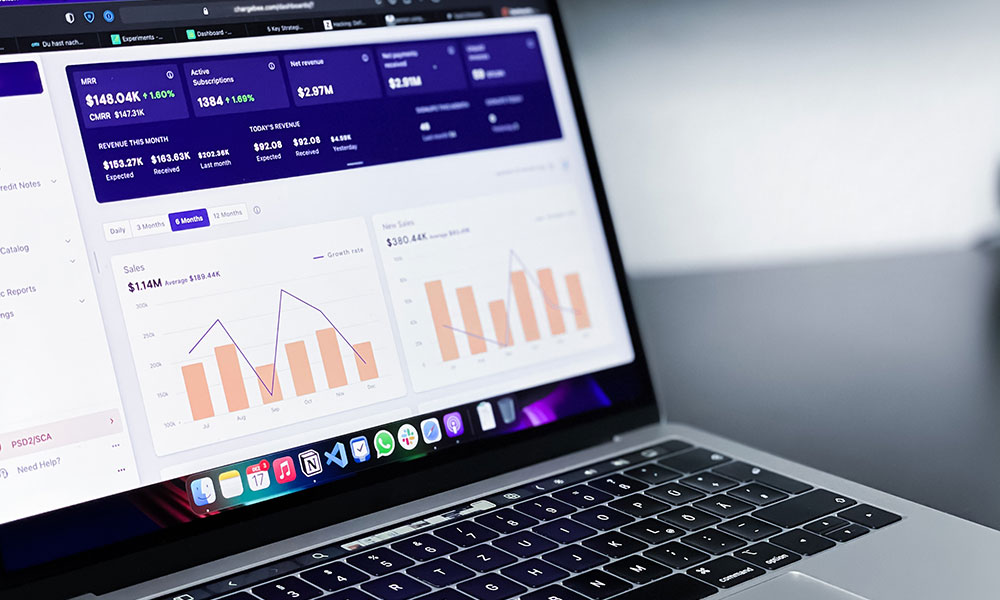What Skills Digital Marketers NEED
Many people consider digital marketing to be a dream job.
With the advent of various technology firm perks and telecommuting positions, digital marketers can now earn a six-figure salary, have unlimited vacation, and work from home — or even across the world as a digital nomad.
Whether you want to start a new career as a digital marketer this year, shift careers, leave a desk job to travel as a remote digital worker, or develop your abilities at your present digital marketing job, this article will be right up your alley.
Here are the most important digital marketing skills we’ve found to have helped develop workers working digital jobs in digital marketing agencies:

Lead In
The digital sector is huge, and it can be difficult for novices or marketers wanting to identify their niche to navigate. There might be a lot to deal with if you don't focus your attention on the areas that matter to a business, from knowing the best data analytics tools to mastering SEO and content marketing.
Successful digital marketers will be able to adapt rapidly and learn on their own, as well as be prepared to pivot into various digital vocations if previous talents become obsolete. They will be working with a variety of teams and clients, so they must be able to communicate effectively and establish great teams.
The good news is that marketers with agile digital skills are in high demand globally. According to DMI's study paper 'Perpetual Evolution,' talent and technology are driving the future of digital marketing, with organisations eager to hire digital marketers. And don't forget to leverage and strengthen your hard and soft abilities as you advance into interesting new positions.
Skills
You might be asking - “What makes these particular abilities or skills so unique?”
That is a very fair and reasonable question to be asking, honestly.
In companies with limited marketing resources, digital marketing mostly assists the sales force with asset creation and sales collateral. These organisations' digital marketers may find that the majority of their time is spent producing PowerPoint decks and designing trade show banners.
On the other hand, digital marketing is responsible for the lion's share of lead generation at marketing-successful organisations, the ones who understand it. In many firms, inbound leads abound, and salespeople take a more passive approach, merely reacting to SQLs (sales-qualified leads) who have expressed interest, requested a demo, downloaded a trial, and so on.
The old marketing style — found in organisations with weak marketing—is, at best, flawed. Skilled digital marketers may build dynamic marketing funnels that generate leads entirely on their own.
A good corporation recognises this, capitalises on it, and does not force its marketers to follow the sales team's lead. Rather, the sales and marketing teams collaborate to achieve a common goal.
So, without further ado, let’s do further and get down to the first skill any good digital marketer will need right off the bat.
Marketing Analytics

While Digital Marketers do not normally need to be able to deal with data analytics at the same level as let’s say, a Data Scientist. They do need to be familiar with Google Analytics and other data analysis tools.
Their detailed information about where your traffic comes from—the most appealing keywords, the most popular times of day, and invaluable data on your audience's age, gender, and location breakdown, as well as their interests and the devices they're using to reach you—is perhaps the most valuable source of audience insight for the Digital Marketer.
Simply put, digital marketing is both creative and analytical (photography, writing, and design) (Google Analytics, CRO, marketing automation).
We've all heard (on Linkedin) individuals say that "content is king." In the world of digital marketing, analytics reigns supreme.
With a little bit of analysis, digital marketers can discover exactly how effective their marketing is performing, and which methods are working and which aren't, and so make smarter decisions about what to do next time.
This isn't to say that every digital marketer should be a data analyst or memorise a slew of complex Excel formulas, but they should be able to track the performance of their marketing in a simple manner.
Although most content marketers are familiar with Google Analytics and other web-tracking software, email marketers may prefer the built-in reports that come with their email marketing suite. Finally, marketers should be able to measure the performance of their marketing efforts.
Search Engine Optimisation & Marketing
It is a well-established subject at this time, search engine optimisation (SEO) is still a developing and exciting component of digital marketing that any professional in this sector should be familiar with.
Search Engine Optimisation is essential at all levels of digital marketing, and everyone entering the profession should have a fundamental understanding of it. You may delegate the very technical, back-end work to the team's more technical members, but understanding how SEO works and a good understanding of best practices and content optimization is critical for conducting a successful digital marketing campaign.
On a data and content level, SEO and Search Engine Marketing (SEM) both inform your entire digital strategy. So you'll need to be able to speak with other teams about this, and you won't get far unless you master the fundamentals and understand how SEO and SEM may operate together.
Again, this is a multidimensional profession, encompassing everything from successful copywriting to addressing behind-the-scenes technological concerns such as page load speed. Using marketing tools to monitor client behaviour and expectations allows you to change your SEO efforts properly, rather than depending solely on guesswork.
Getting visibility on search engines, regardless of how good your material is, necessitates some SEO (search engine optimization) knowledge.
Again, not every digital marketer needs to be concerned with SEO, but understanding the fundamental principles and techniques is critical. Without effective SEO, content does not receive the prominence it deserves, lowering its ROI.
Understanding SEO and being able to "bake it into" marketing content is a fantastic approach for digital marketers to magnify their efforts and increase organic engagement.
Social Media Skills

Speaking of social media, it is the fastest-growing part of digital marketing and currently dominates much of the industry's overall debate.
Currently, about one-third of the population uses some form of social media platform, and 97% of worldwide enterprises employ social marketing. As a result, social media marketing is a valuable skill set to have in your digital marketing toolbox.
If you are already a frequent social media user, you will undoubtedly have a better understanding of how sites such as Facebook, Twitter, and Instagram operate from a consumer standpoint. However, you must go above and beyond to be able to utilise these and other services as a digital marketer. For example, understanding how media relations operate and how to leverage them effectively in your social media game is critical.
Social media marketing entails far more than simply posting on Facebook. You should be able to generate user engagement across all platforms, write copy, design advertising, create images, and analyse reach and engagement. You must also be aware of all of the rapid changes on each platform, as well as when to use different platforms for distinct internal business goals.
It is also important to be aware of how your brand can affect your employability in this field. Employers will be more inclined to believe that you can successfully manage their social media marketing burden if you can demonstrate that you have experience in this area due to the size and scope of your social presence. Conversely, if you do not nurture your brand by building an audience in the social sphere, it may appear that you are not as knowledgeable as you claim.
Web Skills

With the requirement to use WordPress, write text and update websites, apply marketing automation, and grasp CRO, knowing basic HTML and CSS will come in handy. If you can get into a blog's website code and change the title, you'll save a lot of time instead of going to a custom WordPress developer or a brand's product team.
A solid understanding of site design is a skill that makes digital marketers indispensable. This is not to say that all digital marketers should be capable of creating websites from scratch and coding their programming (although knowing how to tweak existing HTML and CSS code is profoundly useful).
It should be noted that visuals drive so much of today's internet marketing. When accompanied by stunning photographs, content on all social media platforms performs better. You must be able to generate and edit your visuals as a digital marketer.
If you can create a banner ad, email banner, or social media graphic in Photoshop, that's one less person you have to deal with, one less step to get your digital campaign up and running - and one less person your client or business has to hire. If Photoshop (or another Adobe product) isn't in your toolbox, there are plenty of alternatives, such as Canva.
A marketer should be able to design and create simple web pages, such as landing pages, lead magnets, and web forms, with a little expertise and marketing magic. Any significant web design work should be delegated to the company's specialised web designer.
Of course, your company's website should have a streamlined blogging and content production system so that marketers don't have to seek assistance from other departments when developing and distributing material.
Simply put, because the sector is technology-driven, you must have a good understanding of technology as well as the ability to learn it rapidly. If you're a millennial or younger, this is certainly second nature, but older generations may want to take some time to understand not only specific technologies, but also generally used software and tools like an audience listening or SEM.
It can also help to grasp the technical abilities required for marketing, such as the fundamentals of web development and how to use Content Management Systems (CMS). For example, if you know the appropriate techniques, a CMS like WordPress, which is used by one-third of all websites, can be customised to increase SEO and help you win your dream job.
Communication

Communication abilities are maybe the most undervalued in any professional situation. Working with groups, as well as talking with prospects and customers, requires the ability to effectively offer and receive information. Without a question.
But what about the communication skills of digital marketers?
Marketers should be able to communicate brilliantly at multiple levels, including web content, emails, blog posts, social media, and so on. They must be able to communicate utilising the company's communication style while also using their voice as necessary.
For example, a copy for a website page should precisely comply with the company's brand voice. Instead of long-form written content, marketers will need to communicate with text, photos, symbols, buttons, style, blurbs, and other elements.
Switching gears, digital marketers must also be able to produce emails for big audiences, tactical recipients, and one-on-one messaging, each with a distinct feel and tone.
Social media updates demand the brand's voice and are distributed to a large audience (ideally). Blog postings are half-personal and half-brand speeches. Because each media necessitates a particular communication style, a good marketer should be a communication chameleon.
Additionally, a strong digital marketing leader will be able to mix analytical thinking with innovative problem solutions, in addition to excellent people skills. This will assist their teams in developing unique marketing campaign ideas to propel their firms forward.
A large part of this is having excellent persuasion and influencing abilities. Can you persuade someone to buy a product? What about convincing other team leaders that your concept is superior? This isn't about arguing; it's about being confident in what you're doing and demonstrating it.
Content Marketing Skills

This may be the most critical talent to have as a digital marketer: I can't think of a single position I've had in digital that didn't need me to write and edit. Because of the importance of content marketing, knowing what makes a great blog post, how to source and generate great content, and how to turn a terrible piece of content into a good one will go very far in your digital marketing career. You should also understand how to use copywriting tools such as AP Styleguide.
Content is at the heart of digital marketing, and it will remain a critical component of the game regardless of what occurs. However, content marketing is a massive undertaking in and of itself. You must be able to produce high-quality, SEO-friendly content for a variety of media, as well as understand how to develop an effective content strategy to engage and convert audiences.
Excellent storytelling skills (including writing, editing, and visual storytelling) are always a plus for a Digital Marketer to engage and convert audiences, whether you're tagging an Instagram post or authoring a thousand-word thought leadership essay for your corporate blog. Excellent storytelling skills (including writing, editing, and visual storytelling) are always a plus for a Digital Marketer, whether you're tagging an Instagram post or authoring a thousand-word thought leadership essay for your corporate blog.
You need solid communication skills, especially when it comes to content marketing – longer articles on themes relevant to your audience that are a major tool in SEO — to be able to present your thoughts not only clearly, but also in a way that seems appealing to the people you want to attract. Related: you'll almost certainly need to be able to handle the backend of WordPress or a similar CMS.
To make matters even more difficult, the material can take numerous formats, including video, social media, emails, web content, blogs, e-books, films, whitepapers, and so on. You must also be well-versed in social media marketing, as content is essential on social platforms. Get some ideas from six big brands who know how to handle content marketing right.
Speaking of video content, video is still taking over the internet, and it's not going away anytime soon. Customers enjoy watching videos, especially on social media, and 8 out of 10 have purchased after watching a brand's video. According to The State of Video Marketing research, 93% of marketers who use video say it's a key aspect of their strategy, and 87% report a favourable Return on Investment (ROI).
Keep in mind that these are general numbers that will change depending on who you ask, but the idea is that most studies indicate that video leads to considerably higher conversion, engagement, and SEO rankings.
What makes it so interesting? Because it is personal and pertinent. People are more likely to trust your company if they can see your face (or the face of the person promoting the brand). It's also fantastically adaptable content for use across multiple platforms. Consider the success of Instagram and the meteoric rise of TikTok!
Digital marketing specialists do not need to be experts in video production. However, knowing how to make videos without hiring a professional is a fantastic starting point. Promo and Camtasia are two excellent tools for this purpose. And if you have some training in this field and enjoy it, your abilities will never be obsolete because the video is constantly in demand.
If you want to learn more on your own, consider video editing software such as Apple Final Cut Pro X or Adobe Premiere Pro.
Problem Solving Skills

Whatever you're attempting to do as a Digital Marketer, your competitors are most certainly attempting the same thing. Your competitive advantage is your capacity to innovate and out-think them, not to mention develop innovative answers to all of the other difficulties that arise during the course of a day, such as discovering new paths to your users and devising new ways to capture and hold their attention.
In theory, being fed reams of data about how a digital marketing campaign is doing is good, but unless you can find out how to remedy any of the problems found by sifting through the figures, it will all be for nought.
As a result, you must hone your problem-solving skills and be prepared to respond to emergent issues in real-time, such as a sudden increase in bounce rate or a major drop in user involvement with social media campaigns.
Closing Words
When a Digital Marketer creates a multi-phase plan to be implemented over weeks or even months, all of these talents come together. Knowing how to design effective marketing plans takes meticulous planning, a forward-thinking approach, and an eye for new trends. Successful digital marketers are insatiably curious about how things function and how they change, both within their own industry and globally. To keep on top of current trends, you must constantly be learning and adapting.

